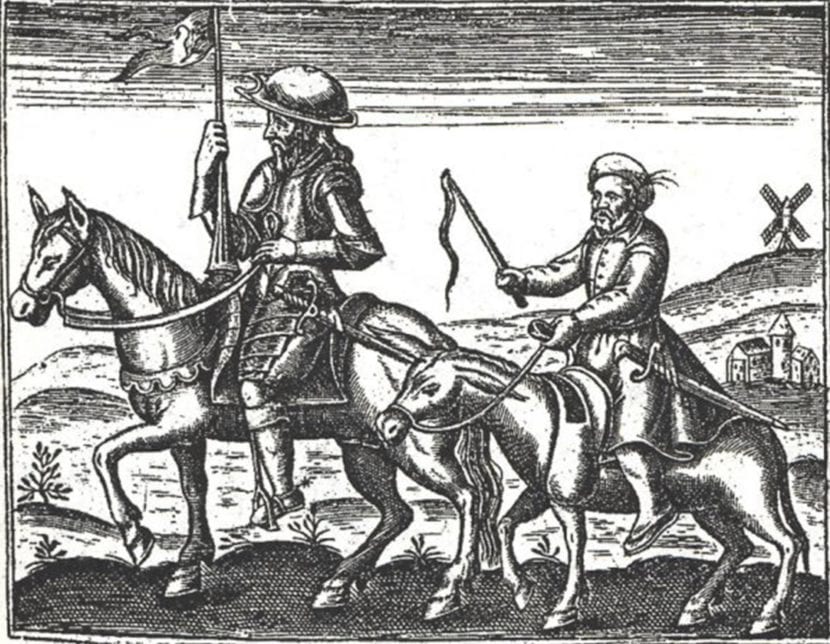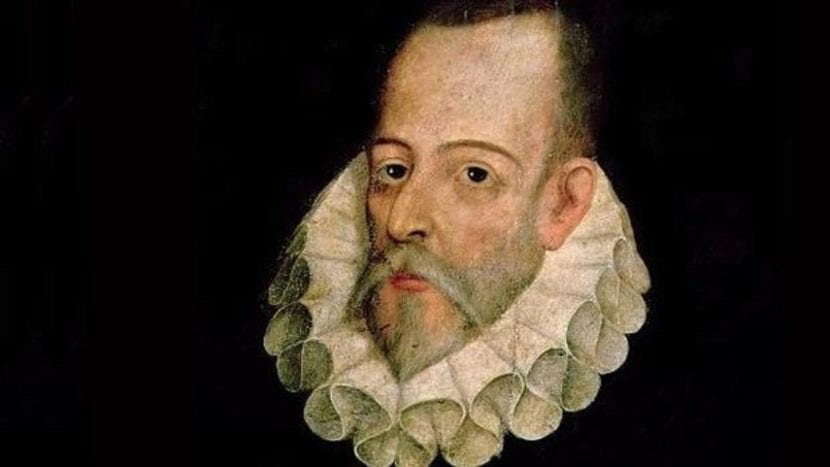
Illustration of the novel Don Quixote de La Mancha.
Don Quixote is certainly the most important work in the Spanish language of all time. The way in which Miguel de Cervantes y Saavedra carried the plot and shows his criticism of the society of XNUMXth century Spain through the madness of its protagonist, is simply masterful.
Right from the start we find a man who loses his mind over so much chivalrous writing and he goes in pursuit of defeating imaginary giants and rescuing maidens who have not asked him to. But how much madness was there really in Don Quixote? The truth is that what Cervantes sought, with what seems like a simple story, to bare the realities that lie behind the intricate human relationships of a unique time in the Spanish nation.
The madman from La Mancha or the excuse?
If something stood out Miguel de Cervantes and SaavedraIt was in his intelligence and sagacity in expressing himself with his pen. Quixote's madness, then, was nothing more than an excuse to unleash what he kept so much after so many injustices observed and lived, after the battles, after so many pictures of inequality, after existence itself.
Cervantes delves into his work in the masks, in the roles that each one has to assume in this tragicomedy that is life. Not in vain in one of the dialogues of the noble Quixote he expresses the following:
“One is the ruffian, another the liar, this is the merchant, that the soldier, another the simple discreet, another the simple lover; and when the comedy is over and stripping off her dresses, all the recitors remain the same ”.
His novel is, then, a clear mirror of the prevailing hypocrisy in society, the present, the past and the one to come. The madman is just another common character, another being who had to assume different roles until his acting time is up.

Portrait of Miguel de Cervantes y Saavedra.
The return of sanity
In the end Alonso Quijano, after facing so much the monster that is human society, returned to sanity. Now, we speak of a lucidity that accepts everything when death is near, a state product of walking a long journey facing internal and external demons. Perhaps the most instructive of all is that the protagonist reveals the daily reality of being, that mirror that we all see, but that many are silent.
Don Quixote does not contain a deep criticism of the Spain of the time of Cervantes, it is a criticism against all of Christian Europe and against the Old Regime three centuries before the French Revolution, without a doubt Cervantes was a prudent revolutionary to express himself freely before the annihilating power of the Inquisition (which not only existed and repressed in Spain) and the courts of the Crown, because in those times "Justice" was "of the King."